Your smile is one of the best things about you. It boosts your confidence, leaves a lasting impression, and reflects your overall health. But many people don’t think about dental care until they have a problem. The good news is that you can keep your smile strong, bright, and healthy at any age if you follow a few simple habits and see your dentist regularly.
In this guide, we’ll share important dental care tips for kids, adults, and seniors, along with expert advice on how to avoid problems like cavities, gum disease, and tooth loss.
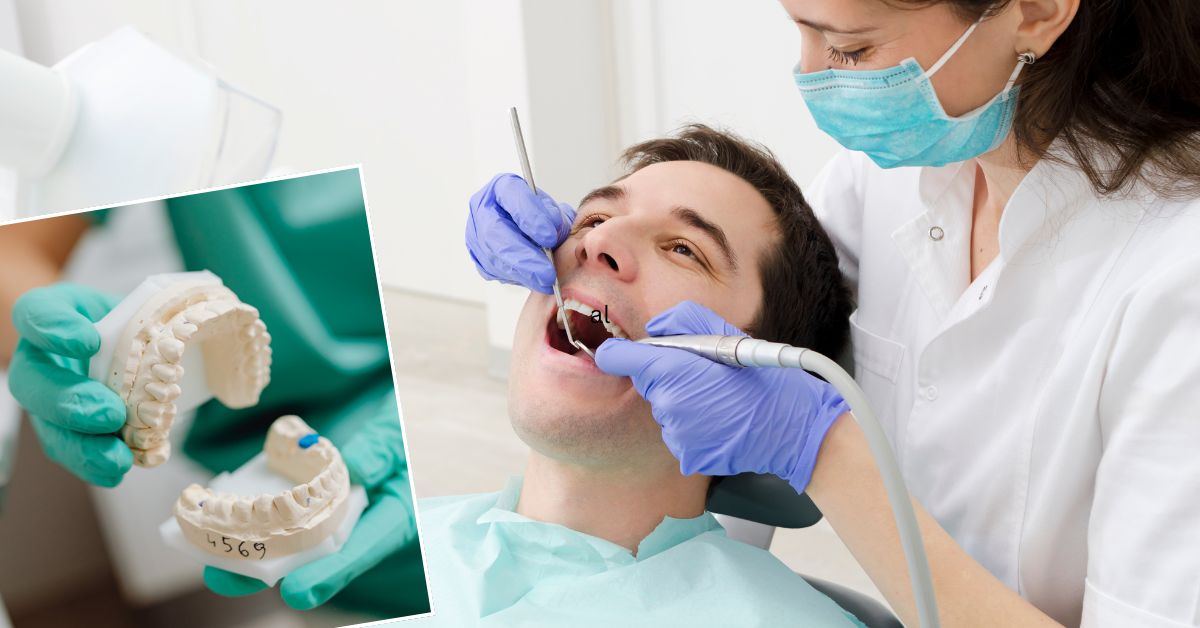
Why taking care of your teeth is important for more than just your smile
Having white teeth isn’t the only sign of good oral health—it’s also closely linked to your overall well-being. If you don’t take care of your teeth and gums, harmful bacteria can build up in your mouth. This can lead to gum infections, tooth decay, and even serious health issues. Studies have found strong connections between poor oral health and long-term illnesses such as heart disease, diabetes, respiratory infections, and pregnancy complications.
Brushing and flossing are more than just ways to keep your breath fresh and your smile attractive; they are essential daily habits that help protect your whole body.
The best daily dental routine
The first step is to brush your teeth twice a day with a soft-bristled toothbrush and fluoride toothpaste. Use gentle circular motions for at least two minutes to clean all surfaces properly. Replace your toothbrush every three to four months to keep it effective.
Flossing once a day is just as important because brushing only cleans about 60% of the tooth surface. Flossing removes plaque and food particles from between your teeth, preventing cavities and gum problems in areas your brush can’t reach.
Adding mouthwash to your daily routine offers extra protection. An alcohol-free antibacterial rinse helps prevent plaque buildup, freshens breath, and supports gum health.
Your diet also plays a key role in dental care. Crunchy fruits, leafy greens, yogurt, cheese, and nuts are great for your teeth. In contrast, sugary snacks, sodas, sticky candies, and acidic drinks should be limited, as they can weaken enamel and cause cavities.
Lastly, don’t underestimate the power of water. Drinking plenty of water throughout the day washes away food particles, neutralizes acids, and promotes healthy saliva flow.
Quick answer: The best daily dental routine is to brush your teeth twice, floss once, rinse with mouthwash, eat a tooth-friendly diet, and drink lots of water.
Things you shouldn’t do when it comes to your teeth
Even people with good intentions can make mistakes that harm their teeth over time. A common mistake is skipping flossing, thinking brushing is enough. Some people also use their teeth as tools—such as opening bottles or biting nails—which can cause chips or fractures. Ignoring bleeding gums is another error, as it may be an early sign of gum disease. Brushing too hard can also wear down enamel. Finally, many people delay visiting the dentist until they’re in pain, missing the chance to stop small problems before they become serious.
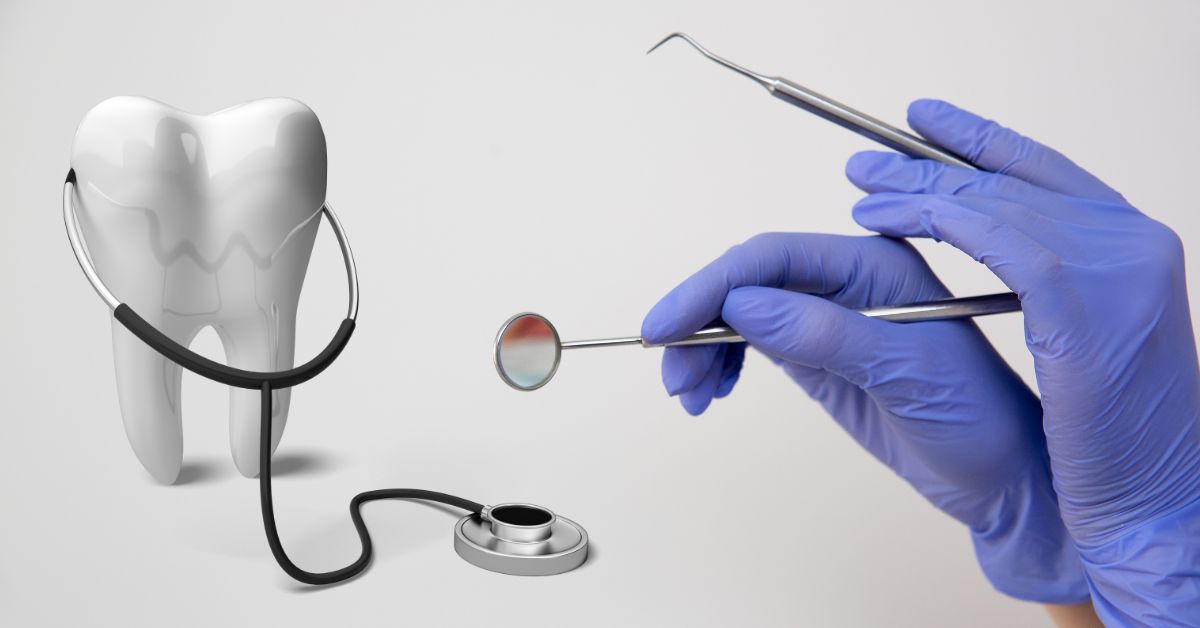
Why you need to go to the dentist regularly
Your dentist can detect issues you may not notice, such as cavities, gum disease, or even oral cancer.
How often should you go?
- Most people: Every six months for cleanings and exams
- Some patients (diabetes, gum disease, etc.): May need more frequent visits
👉 Think of your dentist as a partner in prevention, catching small issues before they become painful or costly.
Dental care at different stages of life
As we age, our oral health needs change. Knowing what to focus on at each stage helps keep your smile strong and healthy.
Children (1–12 years): Dental care should begin early. The first dental visit should happen by age one or when the first tooth appears. The focus is on preventing cavities, starting fluoride treatments if needed, and teaching children proper brushing and flossing habits.
Teenagers (13–19 years): Orthodontic treatment (braces or aligners) is often needed as teeth and jaws develop. Wisdom teeth may also begin to appear and should be monitored. Teens should avoid sodas and energy drinks, which can quickly damage enamel and increase the risk of cavities.
Adults (20–50 years): Regular cleanings and gum care are essential to prevent long-term damage. Many adults also consider cosmetic or whitening treatments at this stage. Problems such as grinding, sensitivity, or misalignment should be addressed promptly to prevent bigger issues later.
Seniors (50+ years): Older adults face unique challenges, such as gum disease, dry mouth, and tooth loss. Implants, bridges, or dentures may be needed. Oral health is especially important in this stage because it supports nutrition and overall health. With proper care, seniors can maintain their smiles and enjoy a better quality of life.
Foods that are good for strong, healthy teeth

A nutritious diet keeps enamel and gums healthy.
- Crunchy fruits and vegetables (like apples and carrots) naturally clean teeth and gently massage gums
- Dairy products (cheese, yogurt) provide calcium and phosphates to strengthen enamel
- Leafy greens supply vitamins for gum health
- Green tea contains natural antioxidants that fight harmful bacteria
Avoid soda, sticky candies, chips, and frequent snacking, as they can erode enamel and significantly increase cavity risk.
Signs that you need to see a dentist
Don’t ignore early warning signs of dental problems. Seek care if you experience:
- Tooth pain or persistent sensitivity
- Bleeding gums when brushing
- Loose teeth as an adult
- Mouth sores that don’t heal within two weeks
- Chronic bad breath
These may signal cavities, gum disease, or other serious conditions. The best way to protect your smile and your health is to schedule a dental visit at Pinellas Family Dental as soon as you notice any of these symptoms.
Recent Post
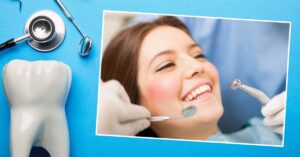
Say Goodbye to Sensitive Teeth: Surprising Habits That Really Work
Have you ever bitten into ice cream or sipped a hot drink, only to feel a sharp zing in your teeth? That quick, uncomfortable jolt
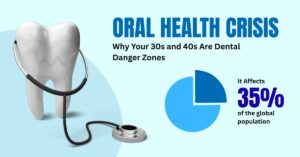
Oral Health Crisis: Why Your 30s and 40s Are Dental Danger Zones
Have you ever thought about why your dentist seems to become your best friend in your 30s and 40s? Spoiler alert: They don’t miss your

Sleep Apnea Treatment: Restoring Health Through Better Sleep
Sleep is the body’s reset button. When it is interrupted by a condition like sleep apnea, the results can be harmful to both daily energy
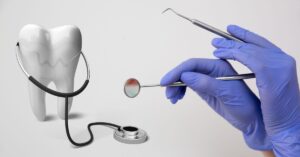
How to Keep Your Teeth Healthy for Life: Tips for Dental Care
Your smile is one of the best things about you. It boosts your confidence, leaves a lasting impression, and reflects your overall health. But many
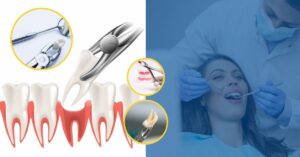
Understanding Tooth Nerve Death: Causes, Symptoms, and Solutions
Have you ever had a toothache that made you think your tooth was planning to get back at you? You’re not the only one. Tooth

Teeth Care Tips Post-Fluoride Removal in Pinellas County, FL
Starting July 1, 2025, Pinellas County will no longer be able to add fluoride to its public water supply because of a new law in

